The Unalienable Rights of Secession
An opinion piece. "A bayonet constitution." ~Queen Liliuokalani of Hawaii, 1887
“What a cruel thing is war: to separate and destroy families and friends, and mar the purest joys and happiness God has granted us in this world; to fill our hearts with hatred instead of love for our neighbors, and to devastate the fair face of this beautiful world.” ~ Robert E. Lee
Over the last 160 years, a change in the scholastic rhetoric has been gradually introduced that undermined and dismissed a founding doctrine that is a part of our nation and most nation-states that have ever existed in humanity. A Right that has secured people’s liberty through generations since the earliest attempts of man to govern themselves. What is this Right? It is the Right of Secession. Before diving into too far into this issue, it is essential to define the term secession to understand the discussion at hand properly.
The word secession has two definitions:
1. The withdrawal into privacy or solitude
2. Formal withdrawal from an organization
It is the second definition, which is critical to examine the original government of the United States as the Founding Fathers of this country knew it, as well as their vision for creating and preserving the government of their new nation.
In the preamble of the United States Declaration of Independence, written by Thomas Jefferson, the very nature of secession is explained. It reads thus, “When in the Course of human events, it becomes necessary for one people to dissolve the political bands which have connected them with another, and to assume among the powers of the earth, the separate and equal station to which the Laws of Nature and of Natures’ God entitle them, a decent respect to the opinions of mankind require that they should declare the causes which impel them to the separation.”
Thomas Jefferson’s language suggests it may become necessary for a nation to leave a union in which the rights of the governed people are violated, and they, therefore, have a right to alter or abolish the government which was originated to protect the rights of its citizens.
Furthermore, Jefferson continues this course with the next section stating that some of the most infamous words of American history in which he says, “We hold these truths to be self-evident, that all men are created equal, that they are endowed by their Creator with certain unalienable Rights, that among these are Life, Liberty, and the pursuit of Happiness. That to secure these rights, Governments are instituted among Men, deriving their just powers from the consent of the governed,--That whenever any Form of Government becomes destructive of these ends, it is the Right of the People to alter or to abolish it, and to institute new Government, laying its foundation on such principles and organizing its powers in such form, as to them shall seem most likely to affect their Safety and Happiness.”
“Prudence, indeed, will dictate that Governments long established should not be changed for light and transient causes; and accordingly, all experience hath shewn, that mankind is more disposed to suffer, while these evils are sufferable, than to right themselves by abolishing the forms to which they are accustomed. But when a long train of abuses and usurpations, pursuing invariably the Government, and to provide new Guards for their future security. –Such has been the patient sufferance of these Colonies; and such is now the necessity which constraints them to alter their former Systems of Government. The history of the present King of Great Britain is a history of repeated injuries and usurpations, all having in direct object the establishment of an absolute Tyranny over these states. To prove this, let Facts be submitted to a candid world.”
Please take note of the highlighted sections (in bold) of both parts of Jefferson’s opening paragraphs. In both, Thomas Jefferson states that this Declaration is not being made lightly against minor infractions of justice but that there is an ongoing abuse of power by which the government owes its people an atonement. This WAS the nature of the secession of the new 13 states of the Confederacy in 1861.
So, what were these infractions the South said the United States government committed? Like the original Thirteen Colonies of Britain, it was the unfair tariffs the South was forced to pay, once the Northern states had taken their share, for the goods and services they sold abroad. While it is a highly contested point of view by today’s historians, it is not without its merit. Nor is it a fictional string Lost Cause advocates cling to for a foothold on the War Between the States narrative. While many claim that the War Between the States was over slavery alone, these tariffs affected the South’s economy, ultimately influencing the start of the so-called “Civil War.”
The constant argument over the tariffs continuously brought the moral question of slavery into the discussion. By 1860, slavery influenced about 30% of the South’s economic production. So, yes, while the moral issue of slavery was a part of the discussion regarding the Southern economy, it was not the centerpiece of it. If slavery had indeed been at the center of the legislative discussions, the legislation that was proposed would have included either giving more rights to the enslaved people themselves or a more progressive method of emancipation to the enslaved people. However, none of these measures were ever put in place during the discussions of this time. Therefore, one can conclude that the issue of slavery was not the centerpiece that modern historians claim it was in the War Between the States.
** A “Civil War” is fought between two parties wanting control of the same government. The War Between the States was not a “Civil War” as the Confederates States of America did not wish to overthrow the government of the United States. The Confederate States of America only wished to be left alone to form a new government as they saw fit. From “insurrection” to “rebellion” to “Civil War,” finding a name for the conflict was always political.
Understanding all this information is crucial as it sets a stage for the Right of Secession and the State’s Rights issue. While many modern historians try to dismiss the State’s Rights as a reason for the Lost Causer’s denial of a Civil War over slavery, looking at the 10th Amendment of the Constitution, we find a different story than popular discourse. The 10th Amendment to the Constitution says, “The powers not delegated to the United States by the Constitution, nor prohibited by it to the States, are reserved to the States respectively, or to the people.” When we understand the text of the Declaration of Independence and our own Constitution, we see the truth behind the Confederacy’s doctrine of States Rights as a just cause for the War Between the States.
The point is further established by the Treaty of Paris which affirms the sovereignty of the States. In the Treaty of Paris, by which the former colonies and the British Crown established their new relationship, Article One states as thus, “His Britannic Majesty acknowledges the said Unites States, viz, New Hampshire, Massachusetts Bey, Rhode Island and Providence Plantations, to be free sovereign and Independent States; that he treats with them as such, and for himself and his Heir’s and Successors, relinquishes all claims to the Government, Propriety, and Territorial Rights of the same and every Part thereof.”
What should be brought to our attention is that in Article One of the Treaty, each state is declared by Britain as a free, sovereign, and independent state. In other words, each state is a power unto itself unless it delegates authority to another state or government power by the consent of the state and its people. Furthermore, it should also be noted that while the Continental Congress was an acting governing authority, it did not have the power to legislate laws for the thirteen colonies during the Revolution. It was merely a de facto-governing body as it was the colonies’ primary means of negotiation with their mother country, Great Britain.
On the other hand, to make this post more than a mere refutation of popular historic discourse, perhaps we should attempt to understand where Abraham Lincoln got off this railway and onto the wrong train.
First, according to Lincoln, the fact that the American Revolution against Britain was won in unity, and the Treaty of Paris called this new country the United States; we were in a perpetual union by which we were all a part of and could not be anything less.
However, this is not what the Treaty of Paris says. As stated above, the Treaty of Paris’s so-called “United States” which won the Revolution, was composed of “(13) free, sovereign and independent states”, not a Union of these 13 states. Second, Lincoln believed that any form of secession of a minority over a majority would cause continual factionalism to the smallest degree and lead to anarchy.
This, once again, is not the case. The South was divided over the issue of secession as well, and unlike what Lincoln says, it wasn’t merely a small faction (this small faction being rumored to be supposedly composed entirely of slave owners) expressing its displeasure over the state of the union. This “faction” was composed of people from all walks of life, from the rich to the poor, from the free to enslaved. Not all slave owners wanted to leave the union, nor did all non-slave owners wish to stay. It is ironic that Lincoln could even think it possible for a city of people to secede from the state as it is absurd of itself. In fact, before the War Between the States, Mayor Fernando Wood of New York City proposed the secession of the Five Boroughs from the state of New York, which was met with incredulous derision.
So, what is the purpose of bringing all these facts to light? It is because of the 1869 Supreme Court case of Texas vs. White where the Supreme Court of the United States declared that the Constitution does not permit secession.
Note that by 1867, the entire Supreme Court was dismissed as they were deemed “impediments to Reconstruction”, and a new Supreme Court had been appointed. It is here, in 1869, where secession as the Founding Fathers knew it, met its end.
According to this new federally appointed Supreme Court, the Southern states had no right to secede without an outright Revolution or asking permission from the other states. Wait, what? Since when does someone in an abusive relationship ever need to ask permission to leave? If this nation of Yankees encourages enslaved people to run away from their owners, why are we not telling states they have the right to run away or leave a “Union” that seeks to undermine their authority to govern themselves? It is the same relationship on a larger scale. Of course, when this argument is given attention, Southerners get “shut down” because of the recurring theme of slavery.
So, what about it then? The result: The most popular discourse of today is that the South’s secession was to preserve the institution of slavery. Today, no one considers that the War Between the States was over taxes, tariffs, and states rights. Where did the historians come up with this idea? One of the most quoted places is in the Confederate States’ Ordinances of Secession, wherein each Southern state declared their independence from the union, similar to the Thirteen Colonies.
In fact, Mississippi’s Ordinance of Secession states this most prevalently as such, “In the momentous step which our State has taken of dissolving its connection with the government of which we so long formed a part, it is but just that we should declare the prominent reasons which have induced our course. Our position is thoroughly identified with the institution of slavery—the greatest material interest of the world. Its labor supplies the products which constitutes by far the largest and most important portions of commerce of the world. These products are peculiar to the climate verging on the tropical regions, and by an imperious law of nature, none but the black race can bear exposure to the tropical sun. These products have become necessities of the world, and a blow at slavery is a blow at commerce and civilization. That blow has been long aimed at the institution and was at the point of reaching its consummation. There was no choice left us but submission to the mandates of abolition, or a dissolution of the Union, whose principles had been subverted to work out our ruin. That we do not overstate the dangers to our institution, a reference to a few facts will sufficiently prove.”
Like the Declaration of Independence with its beloved preamble, this is often where some people may stop reading as it supposedly has everything we want to hear. But let us read below the reasons listed why Mississippi would still cling to such an institution of slavery:
“The hostility to this institution, commenced before the adoption of the Constitution and was manifested in the well-known Ordinance of 1787, in regard to the Northwest Territory.
The feeling increases until, 1819-20, it deprived the South of more than half the vast territory acquired by France.
The same hostility dismembered Texas and seized upon all the territory acquired from Mexico.
It has grown until it denies the right of property in slaves, and refuses protection to that on the high seas, in the Territories, and wherever the government of the United States had jurisdiction.
It refuses the admission of new slave States into the Union and seeks to extinguish it by it within its present limits, denying the power of expansion.
It tramples the original equality of the South under foot.
It has nullified the Fugitive Slave Law in almost every free State in the Union and has utterly broken the compact which our fathers pledged their faith to maintain.
It advocates negro equality, socially and politically, and promotes insurrection and incendiarism in our midst.
It has entitled its press, its pulpits and its schools against us, until the popular mind of the North is excited and inflamed with prejudice. It has made combinations and formed associations to carry out schemes of emancipation in the States and wherever else slavery exists.
It seeks not to elevate or to support the slave, but to destroy his present condition without providing a better.
It has involved a State, and invested with the honors of martyrdom the wretch whose purpose was to apply flames to our dwellings, and the weapons of destruction to our lives.
It has broken every compact into which it has entered for our security.
It has given indubitable evidence of its design to ruin our agriculture, to prostrate our industrial pursuits and to destroy our social system.
It knows no relenting or hesitation in its purposes; it stops not in its march of aggression and leaves us no room to hope for cessation or for pause.
It has recently obtained control of the Government, by the prosecution of it unhallowed schemes, and destroyed the last expectation of living together in friendship and brotherhood.
Utter subjugation awaits us in the Union, if we should consent longer to remain in it. It is not a matter of choice, but of necessity. We must either submit to degradation, and to the loss of property worth four billion of money, or we must secede from the Union framed by our fathers, to secure this as well as every other species of property.
Far less cause than this, our fathers separated from the Crown of England. Our decision is made. We follow their footsteps. We embrace the alternative of separation; and for the reasons here stated, we resolve to maintain our rights with the full consciousness of the justice of our cause, and the undoubting belief of our ability to maintain it.”
Mississippi’s Ordinance tells us why Mississippi “Identifies with the institution of slavery.” The first reason, outside of the fact that the institution had been around from the beginning due to compromise, is that the federal government seeks “to advocate negro equality, socially and politically, and promotes insurrection and incendiarism in our midst.”
Once again, pre-abolitionists and modern historians only see the first half of the statement instead of the whole. Mississippi wasn’t unilaterally opposed to the abolition of slavery so much as what would happen on the other side once slavery was gone. No proposal was ever agreed upon to pay for the loss of labor to the farms and plantations where the enslaved people worked. Additionally, many abolitionist organizations promoted, as the statement says, “insurrection and incendiarism.” The most famous examples were Nat Turner’s Rebellion in 1831 and John Brown’s Revolt at Harpers Ferry in 1859.
For this reason, it is quite clear why Mississippi (and other Deep South cotton states) was frightened of abolition, primarily because of the methods used to obtain it. In fact, because of these events, many efforts made by the Free Blacks of Louisiana to integrate into Southern society were destroyed as their white neighbors became fearful of the potential support for such violent insurrections by said abolitionists.
While we can only project what would have happened to the institution of slavery without the War Between the States, one thing we can know for certain, at the end of this, is at that time, Secession was a State’s Right that was protected by the Constitution and the Confederate States of America had every right to leave the union because of economic and political position in which they were placed.
The situation in the South could be likened to having a legitimate legal case but losing the support of the jury when testimony concerning the defendant’s moral failings was admitted into the court proceedings.
Towards the end of the war, Lincoln made the conflict primarily about the continuation of slavery. By doing so, he successfully silenced the debate about economic issues and state’s rights. The main grievance of the Southern states was tariffs. Although slavery was a factor at the onset of the Civil War, it was not the sole or even the primary cause.
The Tariff of 1828, called the Tariff of Abominations in the South, was the worst exploitation. It passed Congress 105 to 94 but lost among Southern congressmen 50 to 3. The South argues that favoring some industries over others was unconstitutional.
The South Carolina Exposition and Protest written by Vice President John Calhoun warned that if the tariff of 1828 was not repealed, South Carolina would secede. It cited Jefferson and Madison for the precedent that a state had the right to reject or nullify federal law.
In an 1832 state legislature campaign speech, Lincoln defined his position, saying, “My politics are short and sweet, like the old woman’s dance. I am in favor of a national bank…in favor of the internal improvements system and a high protective tariff.” He was firmly against free trade and in favor of using the power of the federal government to benefit specific industries like Lincoln’s favorite, Pennsylvania steel.
The country experienced a period of lower tariffs and vibrant economic growth from 1846 to 1857. Then a bank failure caused the Panic of 1857. Congress used this situation to begin discussing a new tariff act, later called the Morrill Tariff of 1861. However, those debates were met with such Southern hostility that the South seceded before the act was passed.
The South did not secede primarily because of slavery. In Lincoln’s First Inaugural Address he promised he had no intention of changing slavery in the South. He argued it would be unconstitutional for him to do so. He vowed to invade states that failed to collect tariffs to enforce them. It was received from Baltimore to Charleston as a declaration of war on the South.
Slavery was an abhorrent practice. It may have been the cause that rallied the North to win. But it was not the primary reason why the South seceded. The Civil War began because of an increasing push to place protective tariffs favoring Northern business interests and every Southern household paid the price.
References & Reading:
Declaration of Independence: A Transcription | National Archives
Tariffs and the American Civil War - Essential Civil War Curriculum
Treaty of Paris (1783) | National Archives
Free People of Color in Louisiana
The Declaration of Causes of Seceding States | American Battlefield Trust
Milestones in the History of U.S. Foreign Relations - Office of the Historian
Thomas Jefferson, The Writings of Thomas Jefferson, Albert Ellery Bergh, editor (Washington, D. C.: Thomas Jefferson Memorial Association, 1903), Vol. I, pg. 28, from his autobiography.

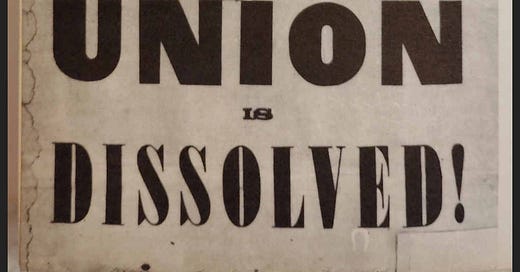




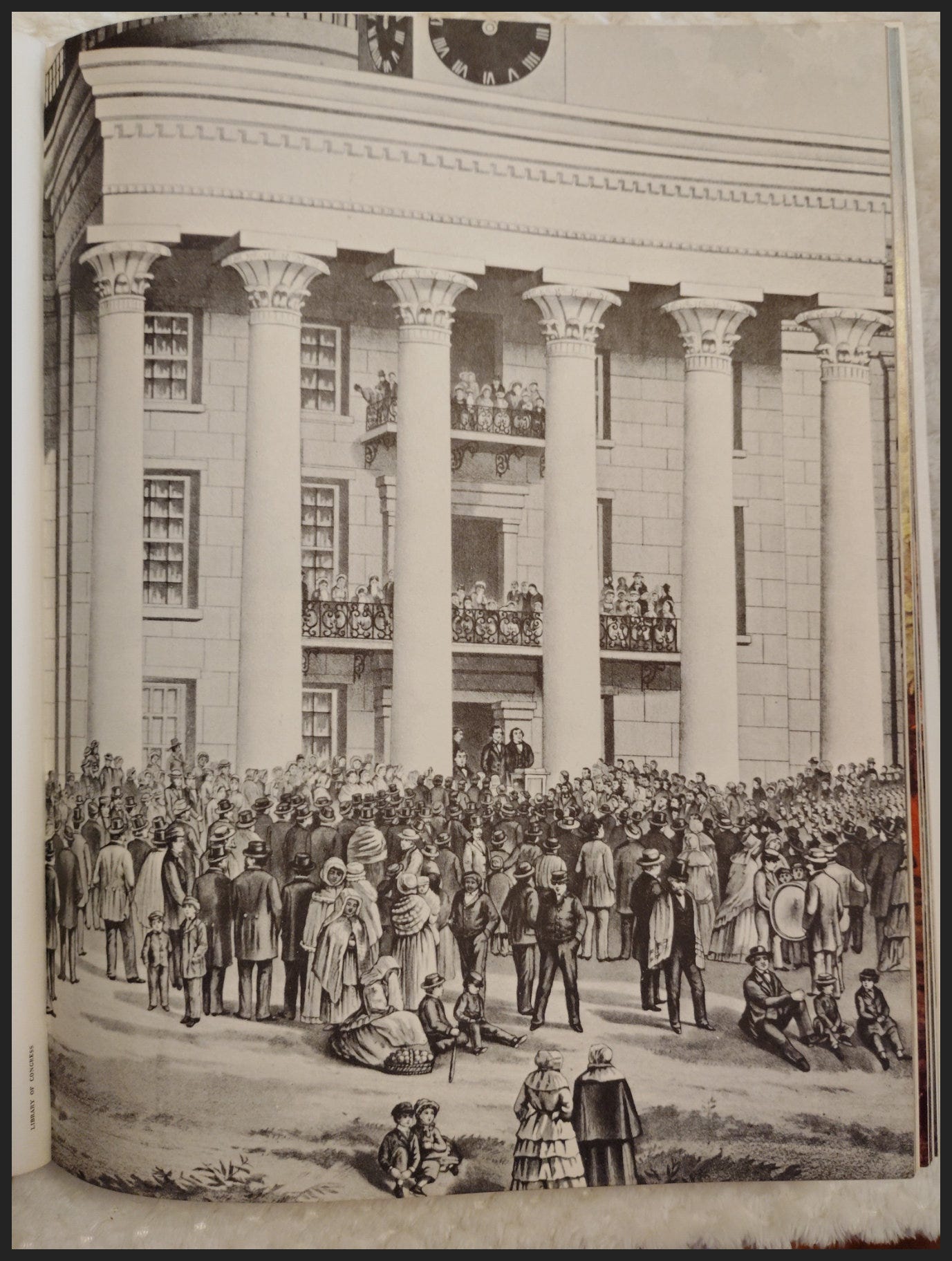
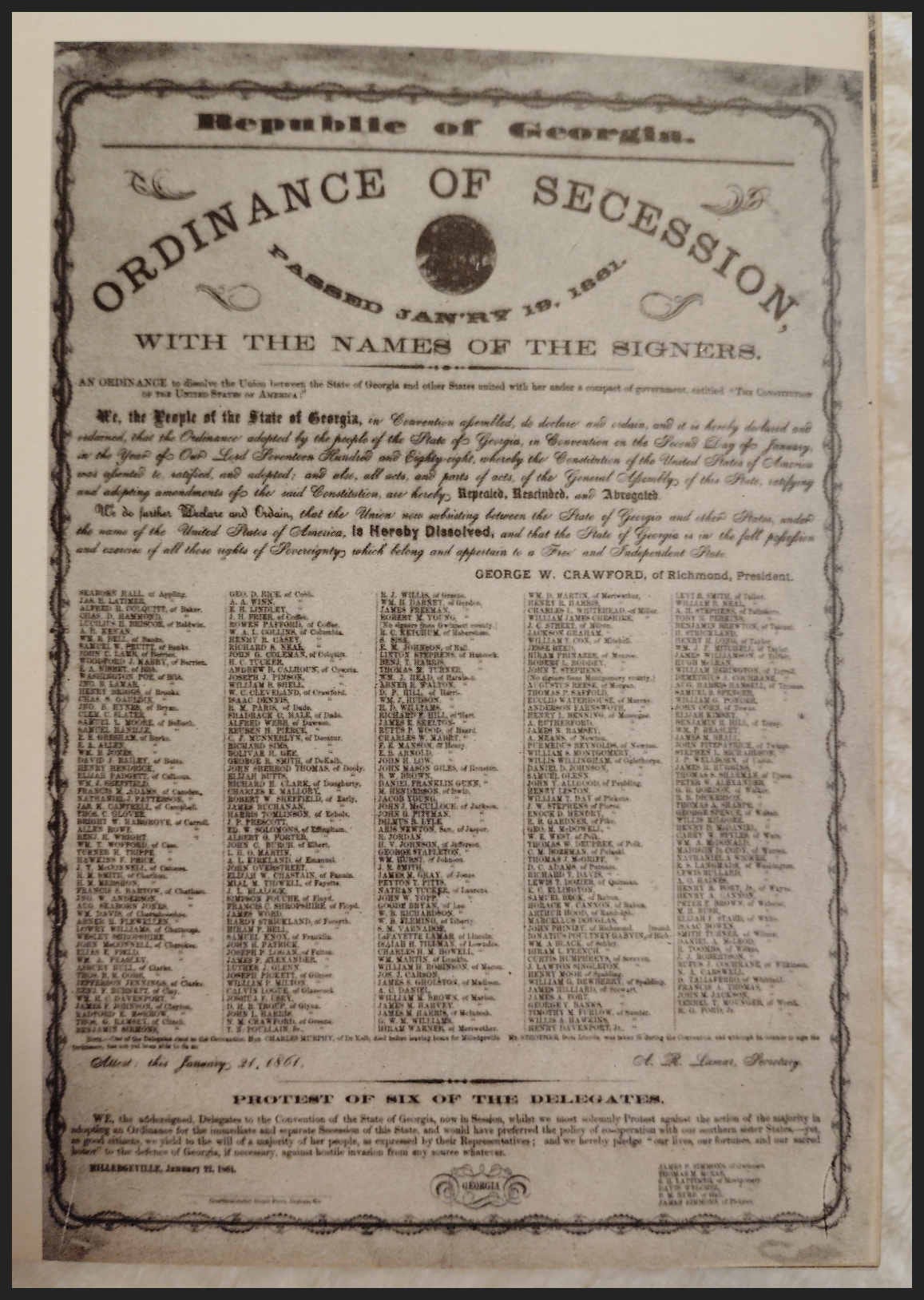
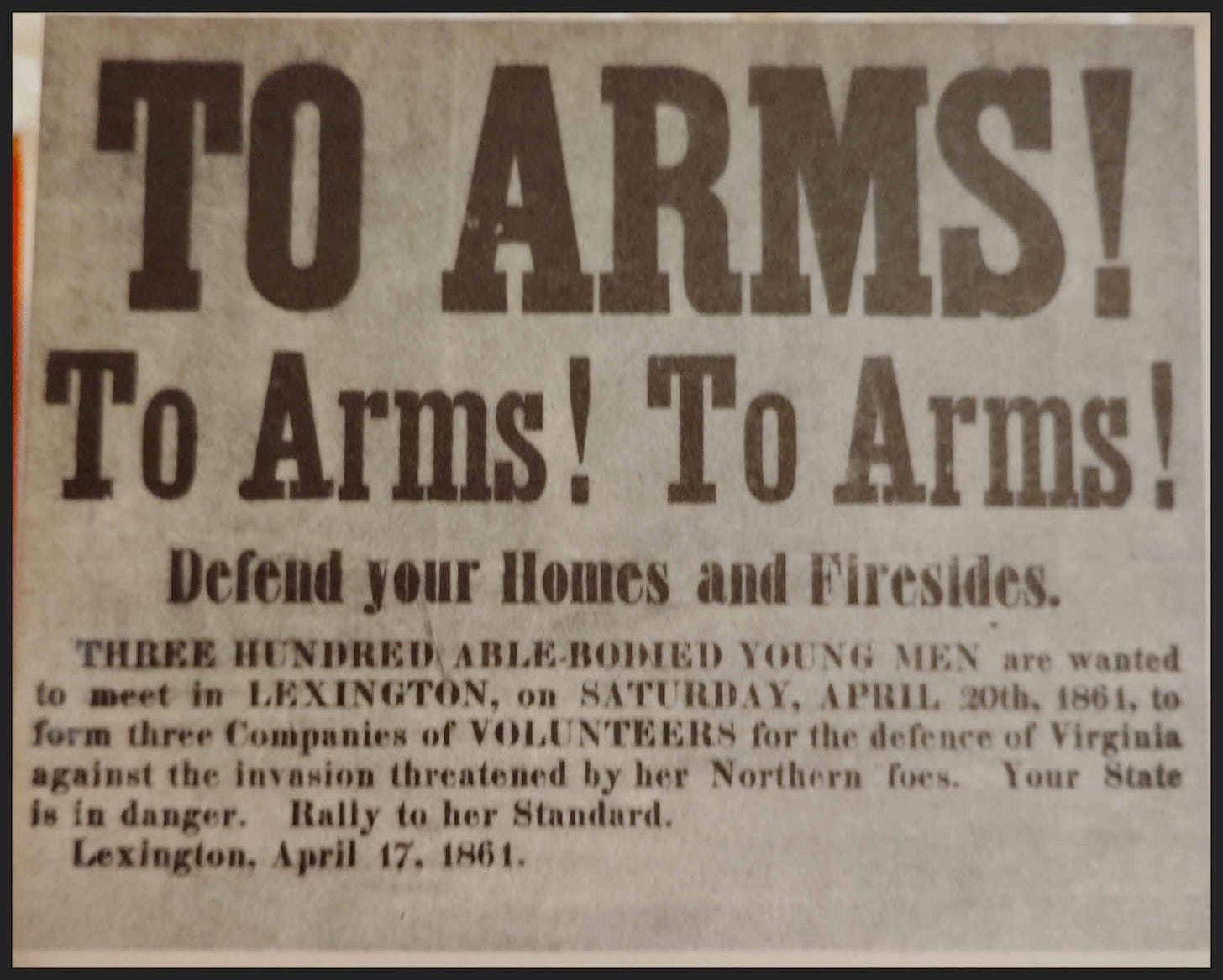
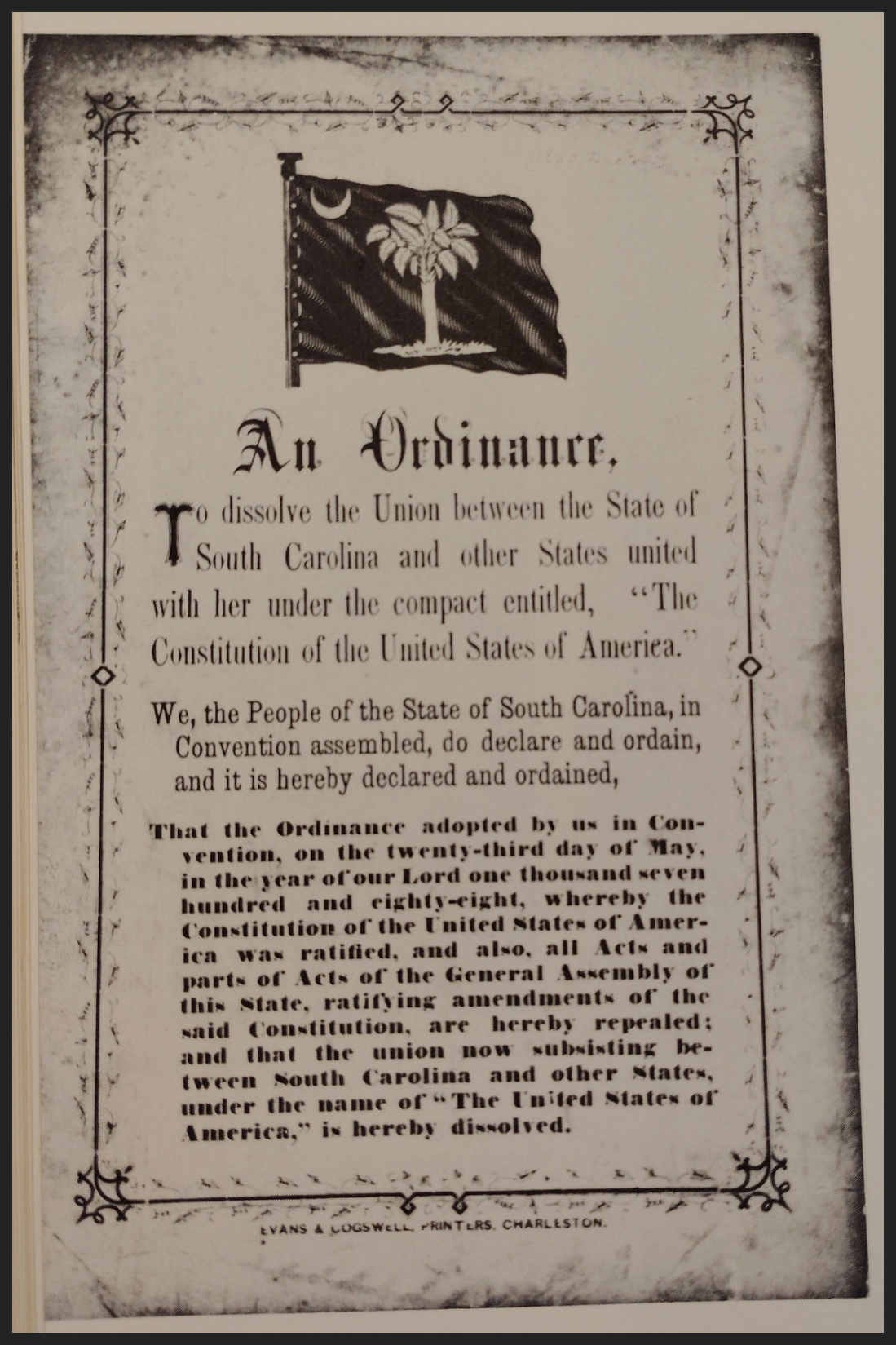


Another one hit out of the park. I like how you are systematically going through and attacking the big questions. The questions you're asking—and answering—are the right ones, of course.
Lincoln was an early hero of mine, but his arguments are completely nonsensical in regard to secession.
I consider Texas v White political propaganda written after the fact to justify unconstitutional actions.
You are completely right about "civil war." It's a pet peeve of mine that bothers me every time I write about the war because I inevitably use it as short hand.
I'm not sure which I prefer more, but there are several labels I enjoy using:
The War of Southern Secession
The War of Northern Agression
The War of Southern Independence
The War of Independence Part 2
👍relevant insights and great work as usual .